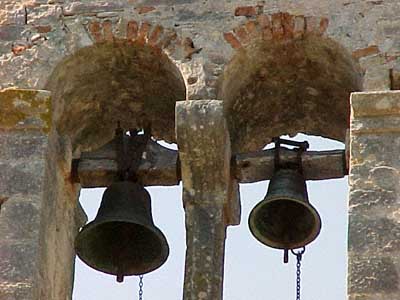In this passage from this morning's prayers, two things ring in my ear like bells.
The first is that, at a Nazarene, Jesus grew up in a backwater that was the butt of jokes and derission among the more sophisticated people in Israel. Jesus was a hillbilly: poor white trash. He came from a place where the news was always bad. I am reminded of national news items about my home state. When we see a story about Kentucky on CNN or Huffington, our first reaction is, "Oh, no. What now?" It's usually about how ours is among the hardest places to live, with the most depressed people, the most numerous smokers, the worst poverty, the highest rates of cancer or drug abuse or most recently, the flu. We expect the news that makes it out of Kentucky to be bad.
At the same time, people who live in the cities of central and western Kentucky often look to the eastern mountains as the home of ignorance, meth labs, moonshine cookers, and snake handlers. Even among ourselves, we have a system of class and caste.
As it is in the Bluegrass, so it was with Israel As far as Rome was concerned, Palestine was a strategically important cultural wasteland. Though their homeland was critical to the Emperor's control of the eastern Mediterranean, the Hebrews looked like savage primitives to the sophisticates in Rome. That cultural contempt echoed in Nathaniel's joke about Nazareth. Nothing good could ever come from the holler dwelling trailer trash in that miserable place.
 |
| Where else would you expect to find the Savior of the World? |
The second bell rings when Jesus greets the man from Bethsaida. We might expect a stern rebuke, or even good natured ribbing from the penniless preacher, but instead, he greets him with praise. Before Nathaniel even speaks to him, Jesus sees his character and his integrity. "Here is truly an Israelite in whom there is no deceit!" Jesus does not return contempt for contempt. Nathaniel may look down on the Carpenter's Son, but at least he is honest about it. He does not smile with his mouth and sneer with his heart. And in that candor and honesty, Jesus recognizes a man who can serve God even if he is very different from the people among whom Jesus was raised. Jesus compassion transcends both bigotry and cultural differences, and in that moment, the two men form a bond that lasts a lifetime.
The story of Nathaniel calls us to look beyond our expectations and our differences. In this morning's collect from the New Zealand Book of Common Prayer, we hear, Make us willing to listen and humble in what we believe is right. (p 563)
Jesus was willing to listen, and humble in his beliefs: he did not see a snob from the port city of Bethsaida, but rather a man who was without trickery or guile. Jesus took the time to see and hear a stranger, and he found a friend. God grant that we might have the courage to really look and see the people we encounter, and the compassion to recognize the divinity in them, in spite of our own assumptions and expectations.
Peace, y'all.
Bob


No comments:
Post a Comment